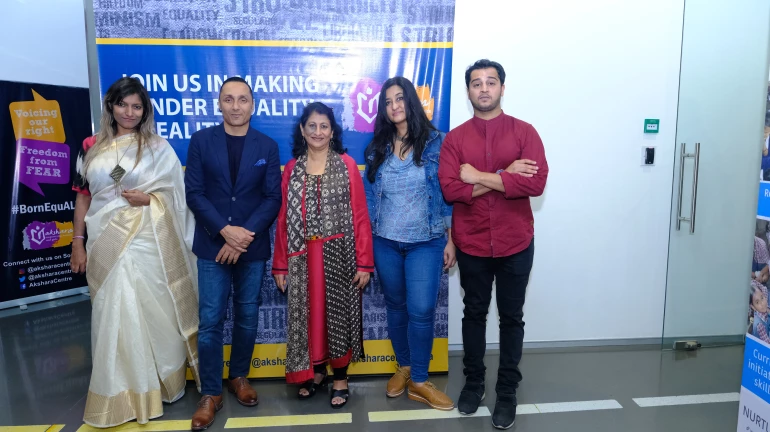
Akshara Centre launched its Report “Big Small Steps”, which measured the acceptance of gender equality and gender beliefs amongst urban youth, the change-makers and thought leaders of tomorrow. The purpose of the report was to understand what this generation of young people understood as gender equality and how much they had moved away from traditional social norms.
To achieve its purpose, Akshara Centre surveyed a total of 6428 youth within the age of 15-29 years of which 3,364 were men and 3,064 women from across 8 different cities in different states of India. Four metros – Mumbai, Delhi, Chennai and Kolkata and four cities namely Vijayawada, Ludhiana, Ahmedabad and Bhubaneswar were covered.
Also Read: American Playwright Eve Ensler Launchs 'The Apology' With Faye D'souza And Rahul Bose
Commenting on the report Rahul Bose said,
Nirbhaya incident in India and MeToo in America were an inflexion point for the world. With this report, we aim to create a similar third wave. In this report, you’ll be shocked yet hopeful. The report isn’t definitive but definitely a solid grounding point. I was raised in the house where my father cooked and mom worked and when I visited my friend's place and saw the opposite happening I would enquire if their mother was ill.
Below mentioned are a few highlights from the report that suggests the current scenario of Gender
Equality amongst youth:
As a city, Mumbai is usually considered as cosmopolitan and progressive had a score which was close to Ludhiana or 56.7 to Ludhiana’s 54.9. Kolkata came up tops in the gender equality ladder with 70.3. The event featured Actor Rahul Bose who opened the dialogue on gender equality, followed by stand-up comedians Jackie Thakkar, Kajol Srinivasan and Pooja Ramachandran in an unconventional format highlighting some hard-hitting facts from the report. The evening saw each one of them bring their inimitable view of gender to the table. It was followed by a discussion on the overarching theme of the importance of youth in changing the uneven levels of gender parity in the country.
Talking on the rationale for the report, Nandita Gandhi, Co-Director of Akshara Centre said
“Unless men, women and all genders have the same opportunities and the same access to resources, we will see not see the progress and development which should rightfully be ours. There is no doubt we need change, as ours is a very unequal and differentiated society with one group being racing ahead and the other far behind. Every generation has its own way of thinking. Unless we know what young people are thinking, how can we speak about change? Research and knowing will give us direction and strategies. “
Commenting on his association with Akshara Centre, Rahul Bose said,
"I have worked with Akshara Centre for the past 17 years. I have watched with awe at their relentless efforts to build a gender-equal India. From their Yuvati-Yuvamelas in the hinterland of this country to their campaigning and advocacy with government agencies. This report is important for us to understand where today’s Indian youth are in their attitudes towards gender equality. It will form an important stepping stone in the direction of gender rights movements in this country take in the years to come".
Also Read: Strive, Don't Just Survive: Criminal Lawyer And Tedx Speaker Carol Jagtiani





